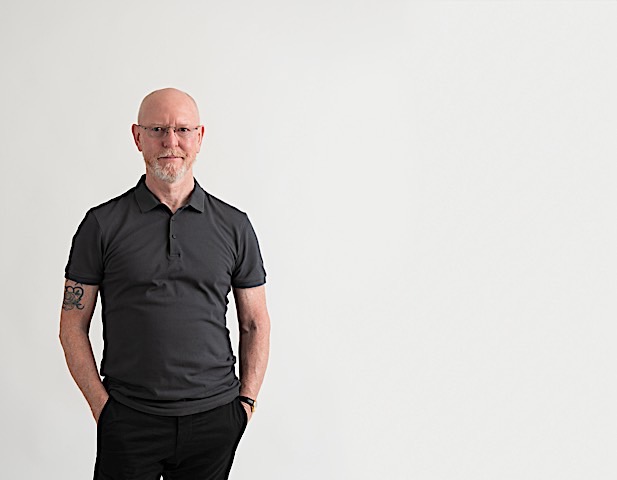Redefining Work in the Age of Longevity
Hello ,
The New Norm: Living a Century
Living to 100 is an emerging norm. For many, this could mean living an extra forty or more years post-retirement, depending on what age you choose to retire and the state of your well-being.
In 2021, with a life expectancy of 83.2 years, Australia ranked fifth among the 38 OECD countries, boasting one of the world's highest life expectancies. [1] Due to better health care and an awareness of our health, we are continuously extending our life expectancy.
Although most of my clients are professional women, which is why I often use the term 'women', I must acknowledge that the same principles apply to the professional men in the caring and creative industries with whom I collaborate.
This extended lifespan allows professionals, especially women, to consider how they want to live those years, purely retired or maybe continue working in some capacity.
There are massive health and well-being benefits, not just financial, to continue engaging in their professional fields, enhancing and engaging their cognitive abilities, fostering social connections, and sharing their vast expertise.
Australia's Work Landscape
Australia's work environment continues evolving as a part of the knowledge economy. According to data from the Australian Government's Jobs and Skills Australia (JSA) department, several occupations are currently in high demand and experiencing skill shortages, especially in knowledge-intensive work. [2]
Healthcare, tech, skilled trades, engineering, teaching, finance, and logistics/transportation industries face talent shortages in Australia, particularly in rural areas. In the industrialised Western countries, this looks only to get worse.
While superannuation can provide a comfortable retirement from age 55, the final amount available will depend on contributions. However, an extended lifespan might require additional financial strategies.
At 55, you may no longer wish to work full-time, and you may like to seek opportunities for continued work depending on your experience and expertise.
Women, including men in the creative and caring industries, have ample opportunities for growth and reinvention. They can solidify their professional identity by staying updated with industry trends and maintaining professional accreditation. Depending on their chosen lifestyle, health and financial choices, and the desire to remain active, they can leverage their expertise through consultancy or part-time roles.
Thriving in the 100-Year Life
In "The 100 Year Life," Lynda Gratton and Professor Andrew J. Scott highlight four critical assets [3]:
Productive Assets: Knowledge, skills, and networks.
Vitality Assets: Physical health, mental well-being, and relationships.
Transformational Assets: Adaptability, self-knowledge, and diverse networks.
Financial Assets: Diversified resources for extended retirement.
We must balance our professional ambitions, personal well-being, and financial security by prioritising the four.
Beyond the 9-to-5: Embracing Flexibility
The work landscape is shifting towards flexibility. Consultancy, freelancing, or part-time roles allow talented professionals to continue contributing while enjoying a balanced life. Depending on your source of work, there is some wriggle room on the jobs you choose to work on and when. A lot depends on your ability to source desirable projects.
The Portfolio Career: Diversifying Expertise
The "portfolio career" was popularised by Charles Handy [4]. Instead of a single-track career, Handy envisioned a professional life with a diverse mix of activities, roles, and income streams. He suggested this could include part-time employment, freelance work, personal projects, consultancy roles, and entrepreneurial ventures. The idea is to diversify professional engagements, like an investment portfolio, to balance risk, reward, passion, and financial security. Sweden's example below offers an interesting approach to older workers.
Sweden's Enlightened Approach to Aging
Sweden values age as an asset, emphasising continuous professional engagement. Their approach highlights the importance of experience and the benefits of staying professionally active.
There's an emphasis on continuous engagement, regardless of age. Sweden boasts the second-highest proportion of 55 to 64-year-olds in employment, with over 20% of Swedes aged 65 to 75 still part of the workforce. The jobs for the older workers are often part-time and allow them to be still socially active. [5]
Looking Ahead: The Future of Professional Engagement
The idea of a 100-year life changes how we plan and approach our careers, making us reconsider old timelines and adapt to longer ones. By staying active, taking on new challenges, and updating their skills, professionals over 60 can keep their careers active.
Five Takeaways to Consider:
- Embrace continuous learning to stay updated in your field.
- Consider flexible work arrangements to balance personal and professional commitments.
- Regularly reassess career goals and be open to new challenges.
- Network actively, both within and outside your age group.
- Prioritise health and well-being to ensure you can maximise extended professional opportunities.
Notes
[2] https://www.jobsandskills.gov.au/news/labour-market-update
[3] Lynda Gratton, Professor Andrew J Scott, The 100-Year Life
[4] Charles Handy, The Empty Raincoat
[5] Oliver Pickup, The Gentle Art of Swedish Death Cleaning
Cheers
Nigel Rawlins
https://wisepreneurs.com.au/
Check out my new podcast page https://www.wisepreneurs.au/





